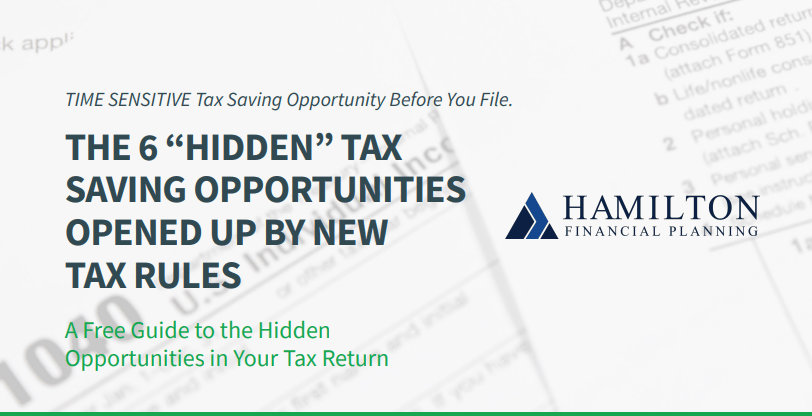
By Scott Hamilton, CFP®
Estate planning often evokes images of complex legal jargon and distant future scenarios. However, at its core, it’s a profound act of care and foresight, verifying that your wishes are honored, your loved ones are cared for, and your assets are managed according to your intentions, no matter what life brings.
The foundation of any effective estate plan is built upon a set of essential legal documents. Understanding how these documents work individually and collectively is the first step toward safeguarding your future and providing confidence for your family.
Table of Contents
The Foundation: Essential Legal Documents
These five documents are the bedrock of most estate plans, addressing critical aspects of asset distribution, financial management, and healthcare decisions.
1. Will (Last Will and Testament)
Your Will is arguably the most recognized estate planning document. It’s a legal declaration of how you want your assets distributed upon your death. Beyond assets, a Will is critical for:
- Appointing an executor: This is the person or entity responsible for carrying out the instructions in your Will, including paying debts and distributing assets.
- Naming guardians for minor children: If you have children under 18, your Will is the place to designate who would become their legal guardian. Without this, a court will decide.
- Creating trusts: A Will can be used to establish a testamentary trust, which takes effect upon your death, for specific purposes like providing for minor children or beneficiaries with special needs.
How it works: Upon your death, your Will goes through a legal process called probate (court-supervised validation and execution of the Will). This process makes the Will a public document and can be time-consuming and costly.
2. Durable Power of Attorney (POA)
A Durable Power of Attorney is a critical document that allows you to designate an agent to make financial and legal decisions on your behalf. This power can be effective immediately upon signing or become effective only upon a specific event, like your incapacitation.
- Why it’s essential: If you become incapacitated due to illness or accident, without a Durable POA, your family would have to go to court to have a conservator or guardian appointed, a process that is often expensive, time-consuming, and emotionally taxing.
- Scope: The POA can grant broad powers (e.g., managing bank accounts, paying bills, selling property) or be very specific.
3. Healthcare Proxy / Medical Power of Attorney
This document empowers a designated individual to make medical decisions on your behalf if you are unable to communicate them yourself. This is distinct from a financial POA.
- Why it’s essential: It confirms that your medical care reflects your wishes, and it removes the burden of difficult decisions from your family during a crisis. Your chosen agent has the legal authority to interact with doctors and make treatment choices based on your previously expressed desires (or what they believe you would want).
4. Living Will (Advance Healthcare Directive)
Often confused with a Will, a Living Will focuses specifically on your medical treatment preferences at the end of life. It details your wishes regarding life-sustaining treatments (e.g., artificial nutrition, hydration, mechanical ventilation) should you be in a terminal condition or persistent vegetative state with no hope of recovery.
- How it works with a Healthcare Proxy: The Living Will expresses what you want, while the Healthcare Proxy designates who confirms that those wishes are carried out. They work in tandem to provide clear guidance to your medical team and loved ones.
5. HIPAA Authorization
The Health Insurance Portability and Accountability Act (HIPAA) safeguards your medical information. A HIPAA Authorization form grants specific individuals (like your Healthcare Proxy agent, spouse, or adult children) permission to access your medical records and discuss your health condition with medical providers.
- Why it’s essential: Without this, even your closest family members may be denied access to crucial health information, hindering their ability to make informed decisions on your behalf during a medical emergency.
Get Started Today
The five estate planning documents discussed above are interconnected tools that provide a comprehensive framework for managing your affairs during life and confirming your wishes after your death.
Consulting with an estate planning professional is essential for tailoring these documents to your specific circumstances, comply with state laws, and effectively meet your personal and financial goals.
At Hamilton Financial Planning, LLC, our estate planning services are built on an honest, trusting relationship that is both transparent and responsive.
Schedule a complimentary get-acquainted meeting online or reach out to us at 512-261-0808 or scott@hamiltonfinancialplanning.com.
About Scott
Scott Hamilton is founder and chief financial officer at Hamilton Financial Planning, a wealth management firm that specializes in providing comprehensive financial planning for retirees. With over 20 years of experience in the financial industry, and having completed over 250 financial plans for retirees across all industries, but mostly the oil and gas industry, Scott is passionate about providing his clients with the tools and insight they need to achieve their financial goals. He has a Bachelor of Business Administration in finance from Texas State University and an MBA in international finance from Pepperdine University. Scott has also been happily married to his wife, Gayle, for over 25 years. To learn more about Scott, connect with him on LinkedIn.

